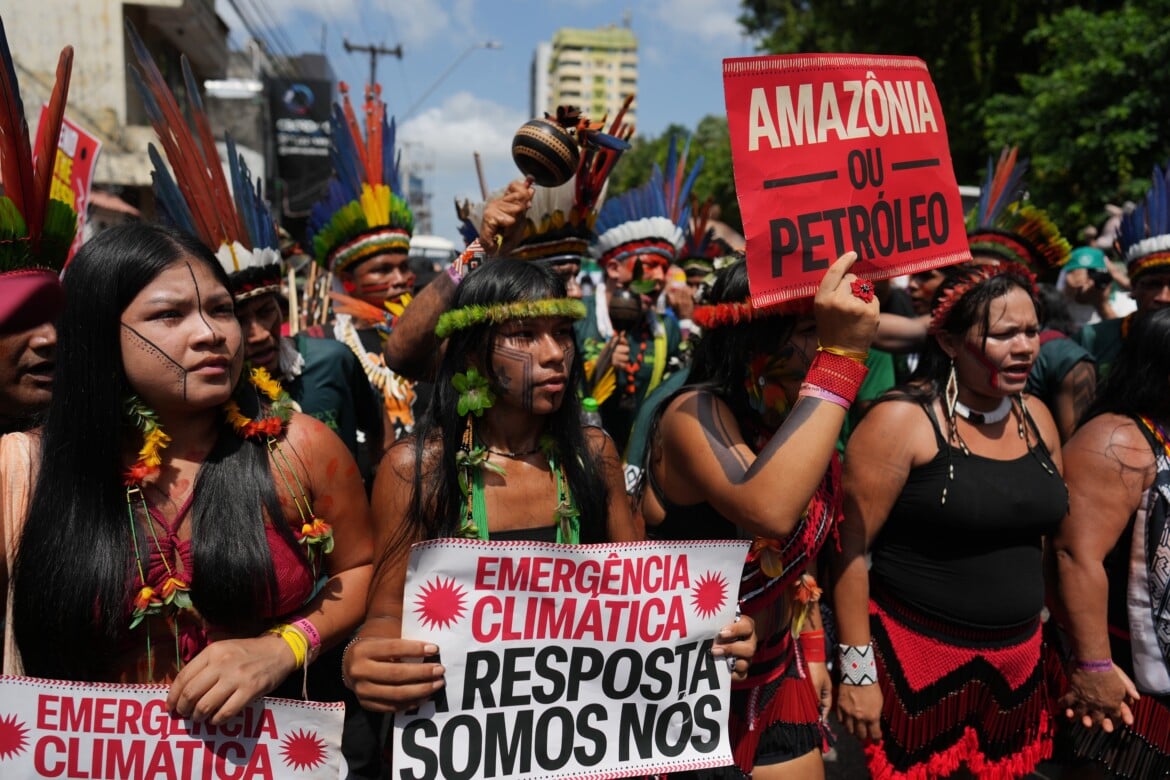Reportage
COP30 draft emerges including phase-out of fossil fuels
European environment ministers arrive in Brazil. Gilberto Pichetto Fratin: ‘We support the initiative, but it depends on how it is formulated. If it entails shutting down coal by 2035 for everyone, I will sign it.’

In the port of Belém, on the Guamá River, ships from the Amazonian flotilla and the Sumud for Gaza mission provided a stage for activists to reiterate that the genocide of the Palestinian people and environmental devastation share the same roots in colonialism and extractivism. Meanwhile, inside the pavilions of COP30, delegations were working on a text that in effect offers the key to the political reading of the climate summit.
On Tuesday, the first draft of the text that will form the final COP30 agreement appeared on the UN website. The document, dubbed the mutirão package – recalling the Brazilian tradition of collective work for the common good – tackles four issues left off the official agenda due to friction between parties: finance, transparency in emissions reporting, trade, and the response to the evidence that current national plans (national emission reduction commitments – NDCs) are insufficient to hold on to the 1.5°C goal.
The text also includes an explicit reference to transitioning away from fossil fuels, a topic that, despite being central to the key resolution of COP28 in 2023, had been left on the margins at last year's summit in Baku. Finance, which remains one of the thorniest issues, is mentioned 26 times in the text. Developed countries are being urged to clarify how they intend to meet their economic commitments, and above all to try to reach the figure of $1.3 trillion annually – promised but never agreed upon at COP29 – to support the transition in developing countries.
The draft also proposes the possibility of an annual review of NDCs to align them with the 1.5°C trajectory. The idea echoes a text approved at COP26 in Glasgow, which asked states to update their climate plans more frequently on a voluntary basis, though almost no one has actually done so.
The very fact that a draft includes language on the fossil fuel transition is, in itself, notable. The wording may be watered down or rejected, but there is a growing sense that a response to the failure of the 1.5°C goal – perhaps coupled with a more robust financial component, as developing countries are demanding – could actually make it into the final Belém document.
“Brazil's acceleration toward a political decision is positive, especially now that ministers have landed in Belém. However, the voice of Europe and its member states, including Italy, must make itself heard on the central negotiation issues: planning the fossil fuel phase-out and scheduling the increase in financing for adaptation,” said Luca Bergamaschi, director and co-founder of ECCO, an Italian climate think tank.
For his part, Italian Environment Minister Gilberto Pichetto Fratin, who has arrived in Belém, responded to the outlet Valori.it regarding the proposal for a fossil-fuel phase-out roadmap: “We support the initiative, but it depends on how it is formulated. If it entails shutting down coal by 2035 for everyone, I will sign it.”
This position reflects Italy's ambiguous stance, which can also be seen in the Climate Change Performance Index 2026, presented on Tuesday in the COP30 pavilions. The index evaluates how effectively the world's major countries are tackling the climate crisis. Italy ranks 46th out of 64 countries analyzed, dropping three spots since 2024 and 17 spots since 2022. This fall highlights the inadequacy of Italian climate policy: the update to its Integrated National Energy and Climate Plan (PNIEC) allows for a greenhouse gas reduction of just 40% by 2030 compared to 1990 levels, rather than the 43.7% established by the EU for sectors covered by the Effort Sharing Regulation (those outside the emissions trading system).
Originally published at https://ilmanifesto.it/un-piano-globale-per-superare-i-combustibili-inquinanti on 2025-11-18
